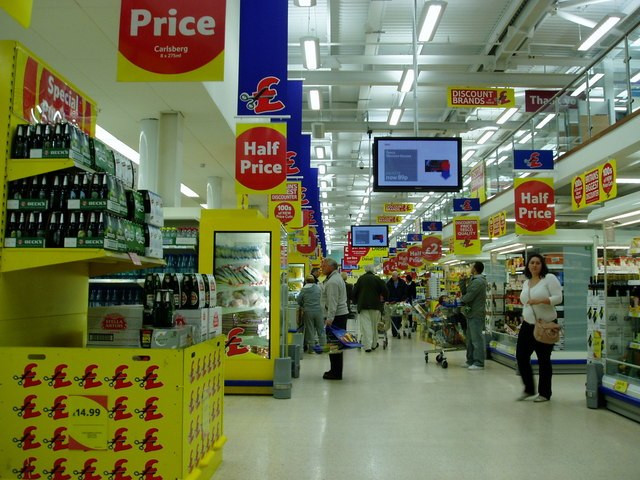The United Kingdom's inflation rate unexpectedly accelerated to 3% in January, exceeding analysts' forecasts and complicating the Bank of England's path for interest rate cuts. Data released Wednesday by the Office for National Statistics (ONS) showed consumer prices rising at the fastest pace in ten months, driven by higher airfares, fuel costs, and a controversial value-added tax (VAT) on private school fees.
Core inflation, which strips out volatile food and energy prices, also climbed to 3.7%, up from 3.2% in December. The increase was led by a jump in services inflation, which rose to 5.0% from 4.4% in the prior month. "Inflation increased sharply this month to its highest annual rate since March last year," said Grant Fitzner, the ONS' chief economist. "The rise was driven by airfares not falling as much as we usually see at this time of year, partly impacted by the timing of flights over Christmas and New Year. This was the weakest January dip since 2020."
The latest figures come as the UK economy grapples with sluggish growth and persistent price pressures, clouding the outlook for monetary policy. Earlier this month, the Bank of England (BOE) made its first interest rate cut of the year, lowering its benchmark rate to 4.5%. However, officials signaled a cautious approach to further cuts, warning that inflation could rise to 3.7% in the third quarter of 2025 before gradually falling back to the 2% target by 2027.
The British pound remained largely unchanged against the dollar following the data release, trading at $1.2615. Investors, however, responded by trimming bets on aggressive BOE rate cuts this year. Traders now anticipate only two more quarter-point reductions, a notable shift from previous expectations.
One of the most significant contributors to inflation was the 20% VAT introduced on private school fees, a policy implemented by the Labour government to fund public services. The tax led to a nearly 13% surge in school fees, lifting education-related inflation to 7.5%, its highest level in almost a decade. "After falling this time last year, the cost of food and non-alcoholic drinks increased, particularly meat, bread, and cereals," Fitzner added. "Private school fees were another factor, as new VAT rules meant prices rose nearly 13% this month."
Rising energy costs and the impact of regulatory price changes are also expected to push inflation higher in the coming months. A report from Cornwall Insight Ltd. on Tuesday projected another increase in the energy price cap in April, marking the third consecutive quarter of rising gas and electricity bills for households.
The inflation surprise has raised concerns about the BOE's policy trajectory, with some economists questioning whether further rate cuts will be delayed. "These figures confirm a disheartening rebound in inflation," said Suren Thiru, economics director at the Institute of Chartered Accountants in England and Wales. "Higher energy prices will push CPI inflation further above 3% over the next seven months. We doubt this will prevent the Bank from cutting rates further, but the risk is that the rise in inflation proves more persistent and rates are cut more slowly than we expect, or not as far."
Labour market strength has added another layer of complexity to the inflation debate. Data released Tuesday showed UK wage growth hitting an eight-month high in the fourth quarter, while employment levels remained relatively stable despite tax increases and a slowing economy. "Hot on the heels of strong wage data yesterday, this morning's hotter-than-expected inflation print will raise alarm bells at Threadneedle Street," said Zara Nokes, global market analyst at JP Morgan Asset Management.
Factory gate prices for goods before they reach retailers also showed signs of renewed price pressures, rising 0.3% in January, faster than the 0.1% forecast. Meanwhile, producer input prices-reflecting raw material costs-fell by just 0.1%, compared to the 0.6% decline economists had predicted.
The inflation uptick presents a political challenge for the Labour government, which has seen its popularity decline since taking office in July. Chancellor of the Exchequer Rachel Reeves acknowledged the strain on households, stating that delivering economic growth and "getting more money in people's pockets" remains a priority. "I know that millions of families are still struggling to make ends meet," she said.
For businesses, the combination of high inflation and weak economic growth raises fears of stagflation, a scenario marked by sluggish demand and persistent price pressures. "The worst-case scenario for UK business is stagflation, combining high inflation and low growth," said Roger Barker, director of policy at the Institute of Directors. "January's inflation figures have done little to mitigate the risk of this outcome."
The BOE's decision to cut interest rates earlier this month now faces increased scrutiny, with some officials warning that inflationary pressures could prove more persistent than initially expected. Governor Andrew Bailey has downplayed the risks of an inflation resurgence, but policymakers remain wary of "second-round effects" that could keep underlying price pressures elevated for longer.
Market expectations for the BOE's next moves have shifted in response to the data, with a March rate cut now deemed unlikely. "This week's data will cause quite the headache for the Bank of England and raises questions about the decision to cut interest rates this month," Nokes said.




